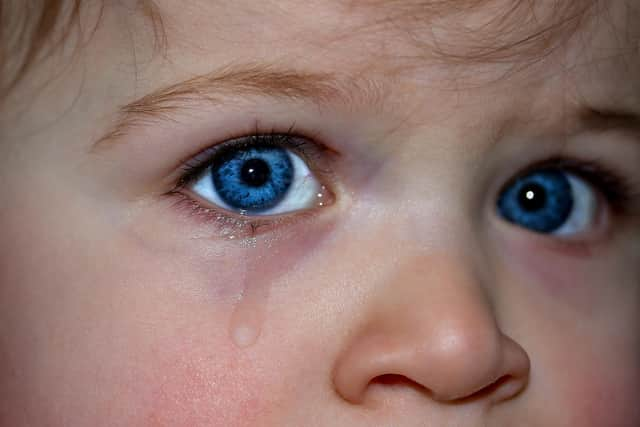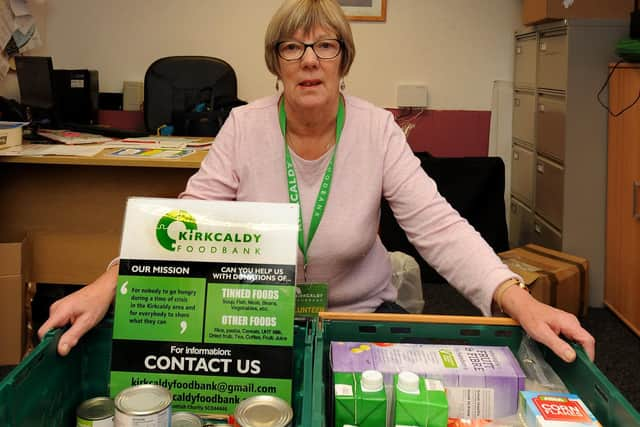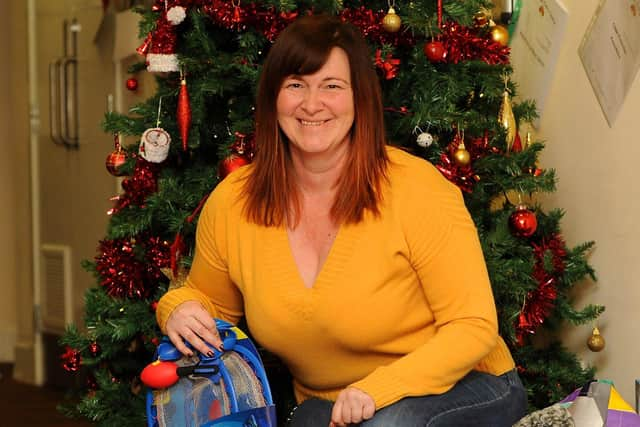Rising Fife child poverty compounded by ”horrendous” impact of lockdown
and live on Freeview channel 276
It didn’t take a university research study to tell Kirkcaldy’s frontline organisations that the problem is rising across town.
They deal with the impact every single day - and the pandemic has simply made their task even tougher.
Advertisement
Hide AdAdvertisement
Hide AdBut the data, from Loughborough University, underlines a regional trend that has concerned a growing number of organisations and politicians for some time.


In Kirkcaldy, the areas of deprivation are getting worse, and the damage to young lives more acute.
The university research, done on behalf of the End Child Poverty coalition, shows child poverty has risen in every Scottish local authority since 2015 - and that was carried out before the pandemic.
Across Fife there has been a 2.7% rise in the estimated number of children defined as living in poverty.
In 2015, the number was put at 15,123.


In 2019-20 it stood at 16.981.
Advertisement
Hide AdAdvertisement
Hide AdTo put that into context, that number is double the capacity of Stark’s Park, home of Raith Rovers.
The fact Scotland’s child poverty levels are lower than those in England and Wales is of scant consolation.
At 24% the number is still well above the 18% goal set in the Child Poverty (Scotland) Act, passed unanimously by the last parliament to be achieved by 2023/24, and down to less than 10% by 2030.


John Dickie, director of the Child Poverty Action Group in Scotland, said: “The figures speak for themselves – the situation for children couldn’t be starker. We all want to live in a society where children are supported to be the best they can be, but the reality is very different for too many. “
Advertisement
Hide AdAdvertisement
Hide AdThat scenario is all too familiar to the community groups working in the frontline across the Lang Toun.
At the Cottage Centre, Pauline Buchan, described the last year as “nothing short of horrendous” for families already battling financial hardship due to the impact of benefits such as Universal Credit and low pay - problems compounded by losing their jobs, being furloughed or unable to work due to illness during the pandemic.
She said: “Across our communities, organisations as well as businesses and the local authority in Fife have continued to work together to support families in the greatest need.
“We will continue to do so - but there must be a realistic plan to not only reduce the effects of poverty across our communities but to eradicate it. This can only begin when people have the means and opportunities to support themselves.”
Advertisement
Hide AdAdvertisement
Hide AdKirkcaldy Foodbank continues to see worryingly high levels of child poverty.
Last month its data highlighted that 40% of people receiving food from it were children and the proportion of families needing help has increased significantly from pre-pandemic numbers.
It also forms part of a huge chain of groups working together to combat child poverty.
That network has become even more of a safety net for many families as state help shrinks.
Advertisement
Hide AdAdvertisement
Hide AdBut one key challenge remains, as Liz Easton at Kirkcaldy YKMCA explained: “The price tag and who pays for it?”
Liz and her team have been offering practical and emotional support throughout the pandemic, and fear the full impact of lockdown is still emerging and that, in turn, will add to the number of children in poverty.
She said: “Covid presented many challenges for families, trying to manage emotionally and financially over the past 15 months.
“Increased food and heating costs would have had an impact, along with drop in income for those being placed on furlough, losing their jobs and having to claim benefits – the benefit system having a four to six week delay before kicking in/money being received.
Advertisement
Hide AdAdvertisement
Hide Ad“We also have the emotional and wellbeing issues increase – really hitting people who were already struggling, being in a fragile place.
“There were people who had been on various support programmes – counselling, mentoring etc who had developed coping strategies and ways to manage their issues, increased resilience.
“Along came covid, knocking many people back, and this affects everyone in the household. Emotional resilience/wellbeing underpins nearly all other aspects of people’s lives, so it is easy to see where people who ‘were managing’ regressed to not being able to manage/cope in a wider sense.”
The YM and Fife Council’s community learning and development team alone help over 350 families per week with twice weekly fresh food deliveries, meals and fresh foods were available through other local groups - the Toll Centre, KSS (Kinghorn Support Squad, Hayfield and Linton Lane Centres, Linktown Residents Group, and Gallatown Bike Hub.
Advertisement
Hide AdAdvertisement
Hide AdHome Start helped 58 local families - 120 children in total - distributing vouchers for supermarkets, clothing, topping up gas/electricity and buying white goods or other essential household items such as washing machines, carpets or kitchen utensils.
Greener Kirkcaldy and the Food Bank increased their offering of food services, with former also running its Cosy Kingdom project, supporting people to save money through energy saving advice.
Add in the key work of the council’s welfare teams, and the extent of the support necessary becomes clear.
It covers everything from food parcels to phone chats, fridges to holiday clubs for kids to make those precious connections with others, but still the numbers rise.
Advertisement
Hide AdAdvertisement
Hide AdAdded Liz: “A key point is that we must collectively support and encourage all children and young people to increase their resilience, skills and knowledge as this will help them progress towards a more positive and successful future.
“Parents will require support and there should be an offer available for local people to take part in community based activity which builds their capacities – for themselves, their children and their future.”